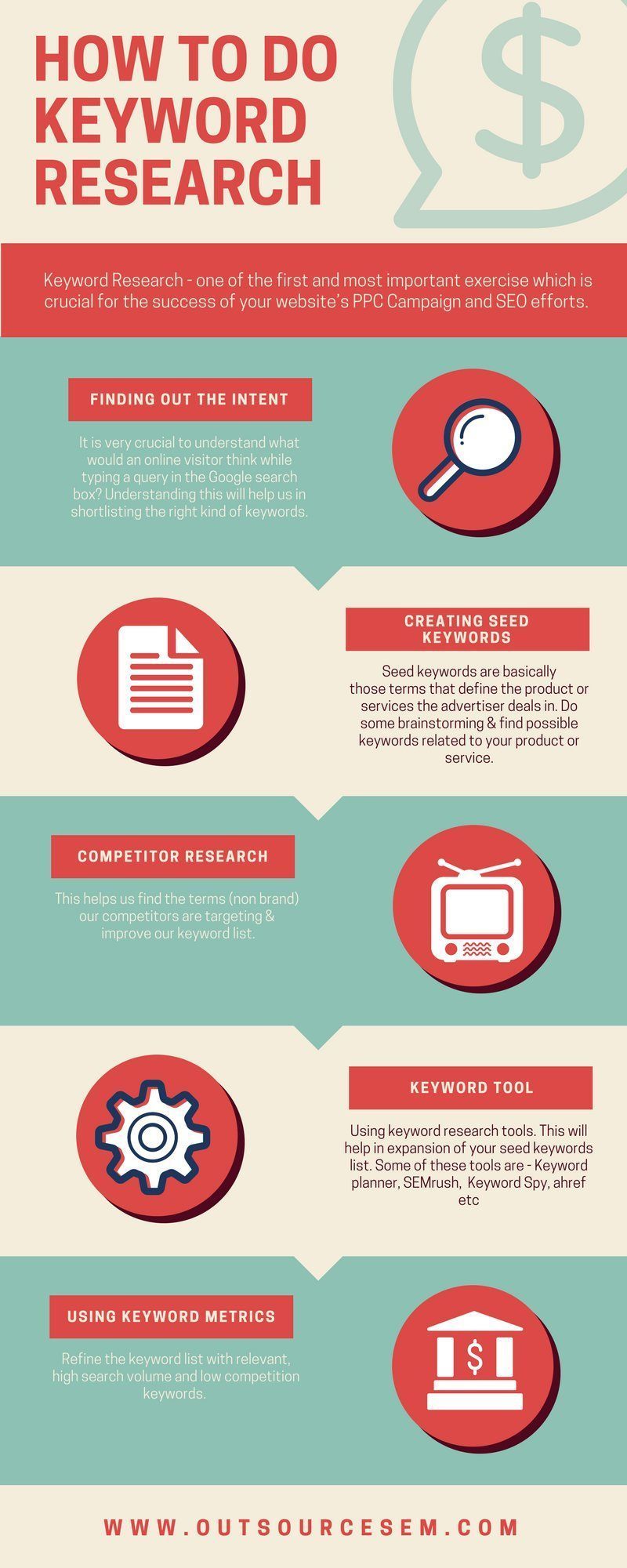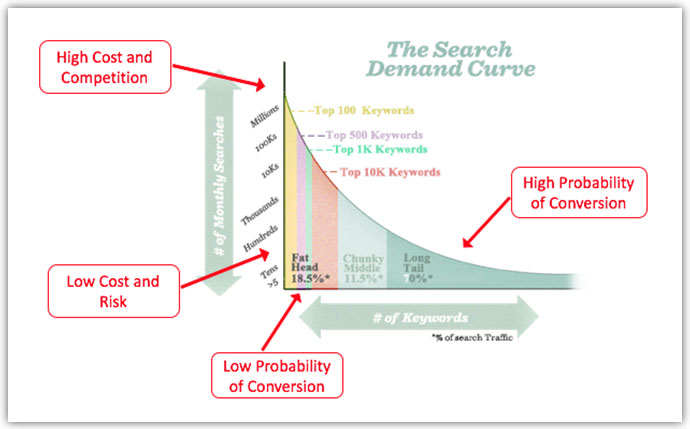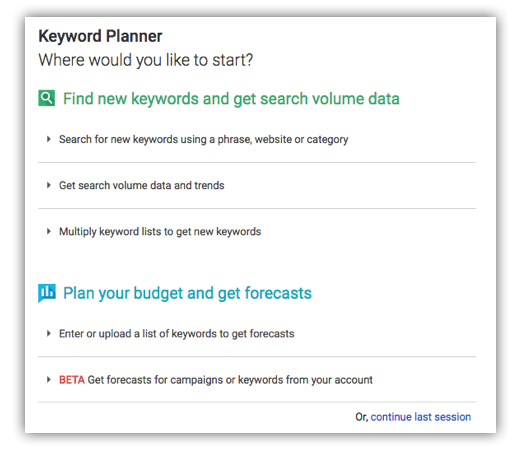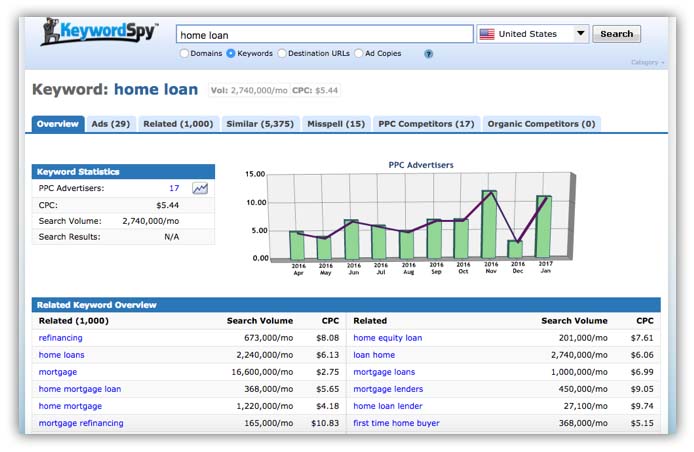There are millions of searches happening every day and out of these there are hundreds and thousands of people looking for the desired information on products & services. To know what they are looking for and optimizing your website accordingly is the first step towards acquiring online customers. Keyword research is all about understanding what terms are being searched or finding out what people are looking for exactly in relation to your product or service offerings.
It’s one of the first and most important exercise which is also crucial for the success of your website’s PPC Campaign (Google Ads/Bing etc.) and SEO efforts. The purpose of this practise is to ensure that you get relevant traffic to your website.
Below are some of the points that we will try to understand.

Finding out the value/worth of a keyword
Value or worth of the keyword is always determined by the relevance of the keyword to your product or services. For example if you own a bakery shop and sell cakes as well as cookies, you need to understand what is that you sell more online or which product generates more revenue. You can get this information by the help of analytics and webmaster tools, which will tell you precisely which product generates more revenue for your company online. This is what will determine the value of a keyword.
Well there are other methods that can also be used to find the worth of a keyword. Tools like Google’s - Keyword Planner (with limitations for SEO) is one such tool that helps us get the monthly search volume as well as the competition for that term. But there are limitations to it as it combines data for plurals, typos, close variants even at times synonyms. It is meant more for a directional purpose and useful in paid search campaigns – Google Ads. There are other competitive tools that share similar type of information – SEMrush, SpyFu, Keyword Spy etc. they are all very useful in understanding which keyword should be selected for targeting.
How to do keyword research
Finding out the intent
It is very crucial to understand what would an online visitor think while typing a query in the Google search box? What would be the intent behind the search? Understanding this will help us in shortlisting the right kind of keywords.
Types of keywords
Product/Services/Seed keywords - Seed keywords are basically those important terms that are very crucial. For a bakery shop owner cake shop, fruit cake, chocolate cake, cheese cake etc. can be seed keywords. In short the terms that define the product or services the advertiser deals in would form the seed keywords.
Brand keywords – are those keywords that are associated with your brand like “Mickey’s Cake Shop” is a brand name as well as brand keyword. If it’s also known as
M’s Cake Shop
MCS
Mickey’s Cake Shop NY
Mikey’s Cake Shop 2nd Ave
Again all the above will be part of brand keywords and hence can be targeted through PPC campaign.
Competitor brand as keywords - will again this will form part of the keyword targeting list. It is crucial to understand that you can target competitor brand names but can’t use them in your ads. Targeting competitor is often considered expensive as the quality score for these keywords are very poor. The reason for the poor QS is that there is hardly any relevance to the landing page and adcopy (as both are missing the competitor terms).
Substitute/synonyms keywords – are considered very important and often crucial in getting you the relevant traffic to the website. Substitute keywords may be additional product names or similar product terms/abbreviations/synonyms like for a bakery shop we can have substitute keywords e.g. cake shop, pastry shop etc.
Supportive keywords – Those things that go along with your main product, like birthday/celebrations caps, candles, balloons etc. which a person may need if he is buying a cake for some ones birthday/anniversary.
Tale of the long tail

Above is a graph taken from Moz , which very well explains the long tails relevance. High volume traffic terms form less than 30% of the total search queries. Most of the query searched on internet form part of the long tail keyword. There is a simple reason for that, these keywords are more “Relevant”. Let’s take the earlier example, a person looking for pastry shop in his locality would not get relevant results if he searches for “pastry shop” as a query. If he does so he will get results from across US, may be few local but not in the same borough. On the other hand if his search includes his borough name the results will be more relevant to his requirement, like “Mikey’s Cake Shop 2nd Ave Manhattan”.
This is the reason why long tail keywords have high probability of conversion. It is crucial that all the relevant long tail keywords should be targeted, though their traffic is low but they form the most important part of the campaign.
Keyword research tools - The tools help in expansion of seed keywords or top level keywords by suggesting similar relevant terms.
Below are few of the tools that I have mentioned, provide great suggestion for expansion of keyword inventory:
Google Ads keyword tool - This is one of the most widely used tool, it helps you in searching for new keyword by using top level phrases, your website or category.

SEMRush – This is a good tool which gives a lot of information in regards CPC, traffic and suggestive list of related terms. It provides country specific data for more than 100+ countries across the globe, which is awesome. It also provides additional information regarding the organic and paid competitors for the keywords. SEMrush is the best tool to use for market research and make market strategies accordingly to target the perfect audience.
.png)
Keyword Spy – This tool provides country specific data for almost 30+ countries. It gives traffic, CPC data as well as suggestive list of new/similar keywords. Apart from that it also provides Paid & Organic competitors that rank for the keyword. There is other information as well that is provided like Paid ads for the keyword, as well as suggested similar, related, misspelled keywords.

SpyFu – This is another great competitor research tool, though it has limitations as it provides country specific data for just US and UK. Still it tries to make it up with the near accurate data it provides. This tool gives insight on paid and organic competitors, related keywords, suggested best backlinks, SERP Analysis etc. Overall a great tool for a Search Specialist.
.jpg)
The way ahead
It is suggested for Search Engine Optimization (SEO) not to just concentrate on few keywords for optimization as this will not help much in their organic rankings. It’s always better to build theme through semantic content for related keywords, which you plan to optimize. In regards to PPC its critical to understand that optimization is an ongoing process and the keywords that don’t perform have to be removed and new keywords added as per requirement. Not every keyword added will perform in the same manner – Return on Investment (ROI), Cost Per Click (CPC) etc. will be different and that would help in keyword stemming. This will further help in understanding which ad copies to be tweaked and how the landing pages have to be optimized.
